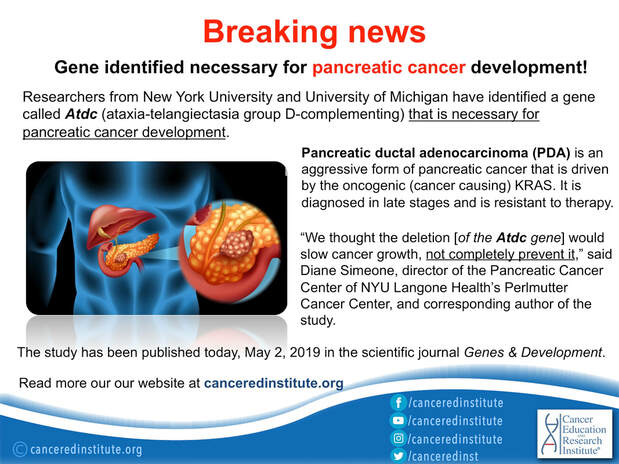Pancreatic ductaladenocarcinoma (PDA) is an aggressive form of pancreatic cancer that is driven by the oncogenic (cancer causing) KRAS. It is diagnosed in late stages and is resistant to therapy.
“We thought the deletion [of the Atdc gene] would slow cancer growth, not completely prevent it,” said Diane Simeone, director of the Pancreatic Cancer Center of NYU LangoneHealth’s PerlmutterCancer Center, and corresponding author of the study.
As for the mechanism, the researchers showed that ATDC promotes acinar–ductal metaplasia (ADM) to pancreatic intraepithelial neoplasia (PanIN) through the activation of β-catenin signaling and subsequent SOX9 up-regulation (over expression).
This breakthrough study revealed great hope for the development of potential new therapies for pancreatic cancer.
Corresponding author of this study is Dr. Diane Simeone: [email protected]











